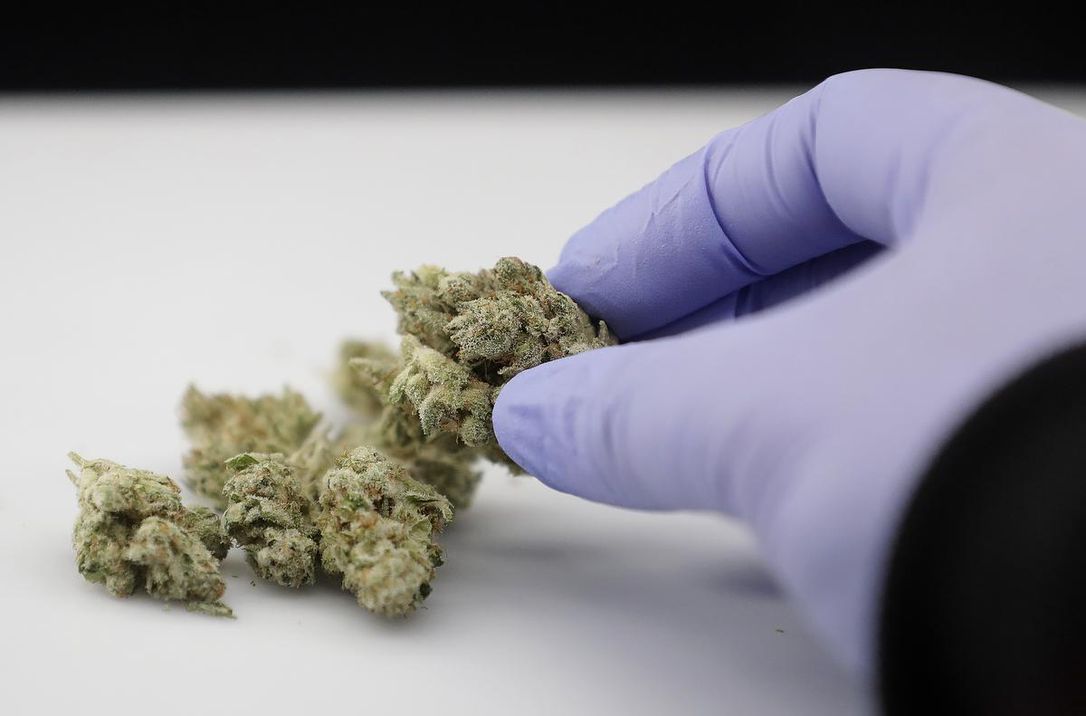You are here
Home 🌿 Medical Cannabis News 🌿 Taxes on medical marijuana pushing patients to illegal sources, group says 🌿Taxes on medical marijuana pushing patients to illegal sources, group says

Since Canada legalized cannabis in October, medicinal marijuana users say their costs have jumped noticeably — pushing more of them to find cheaper sources on the black market.
For the more than 300,000 licensed medical users in this country, federal excise taxes ushered in with legalization have been a bone of contention.
A national lobby group is calling on Ottawa to remove the roughly 10 per cent excise tax on medicinal marijuana, a new levy they say will add hundreds of dollars a year to the cost of their medicine.
“I’ve seen my costs go up in the last few months as some producers have passed along the excise tax costs to their patients,” said Peter Thurley, a Kitchener-based board member with Canadians for Fair Access to Medical Marijuana.
“We’re hoping the federal government will actually listen to patients, and have those taxes taken off.”
Medical cannabis, which Thurley uses to treat chronic nerve pain from major stomach surgery, is the only medicine that is taxed in Canada, he said. The excise tax is paid by licensed cannabis producers, while consumers pay the provincial sales tax — another concern for Canadians for Fair Access to Medical Marijuana.
The lobby group was formed by former University of Waterloo student Jonathan Zaid, who convinced the university’s student union to include medical marijuana as part of its health insurance plan.
Most medical users, however, still pay for their own cannabis out of pocket. An increase of 10 per cent in their costs is enough to push many of them to seek marijuana on the black market for less than half the legal price, Thurley said.
“The reality is this tax is forcing people to consider going to the black market, where you can find product for as low as $3 a gram, delivered straight to your door,” he said.
“For many folks, it’s a no-brainer. Do I spend $300 this month, and have money left over for food, or do I spend $600?”
Keeping medicinal marijuana affordable is also critical in the fight against the opioid epidemic, Thurley said. Some patients turn to opioids to treat pain when they can’t get a reliable and cost-effective supply of cannabis, he said.
For users who rely on cannabis oils more than the dried cannabis flower, the increased costs can be even higher. The excise tax is exempt on CBD-based products, but applied to products with THC, the psychoactive ingredient in cannabis.
Both kinds of cannabis products have medical properties that a lot of users need to treat their symptoms, Thurley argued.
Canadians for Fair Access to Medical Marijuana has been petitioning the federal government for months to remove the excise tax. Their members have written letters to MPs, lobbied the House standing committee on finance and put up billboards outside the offices of Finance Minister Bill Morneau and Bill Blair, minister of border security and organized crime reduction.
The federal government says excise taxes are important to help fight organized crime and keep cannabis out of the hands of children. It’s also considering a rebate program to reimburse medical users for the extra costs related to the tax.
“I think they have their eyes on the revenue, instead of the morality of the issue. And that’s bugging us patients,” Thurley said.
“We seem to be seen as a tax windfall, instead of actual patients. ... I don’t know what else to call this, other than bad policy.”
420 Intel is Your Source for Marijuana News
420 Intel Canada is your leading news source for the Canadian cannabis industry. Get the latest updates on Canadian cannabis stocks and developments on how Canada continues to be a major player in the worldwide recreational and medical cannabis industry.
420 Intel Canada is the Canadian Industry news outlet that will keep you updated on how these Canadian developments in recreational and medical marijuana will impact the country and the world. Our commitment is to bring you the most important cannabis news stories from across Canada every day of the week.
Marijuana industry news is a constant endeavor with new developments each day. For marijuana news across the True North, 420 Intel Canada promises to bring you quality, Canadian, cannabis industry news.
You can get 420 Intel news delivered directly to your inbox by signing up for our daily marijuana news, ensuring you’re always kept up to date on the ever-changing cannabis industry. To stay even better informed about marijuana legalization news follow us on Twitter, Facebook and LinkedIn.




